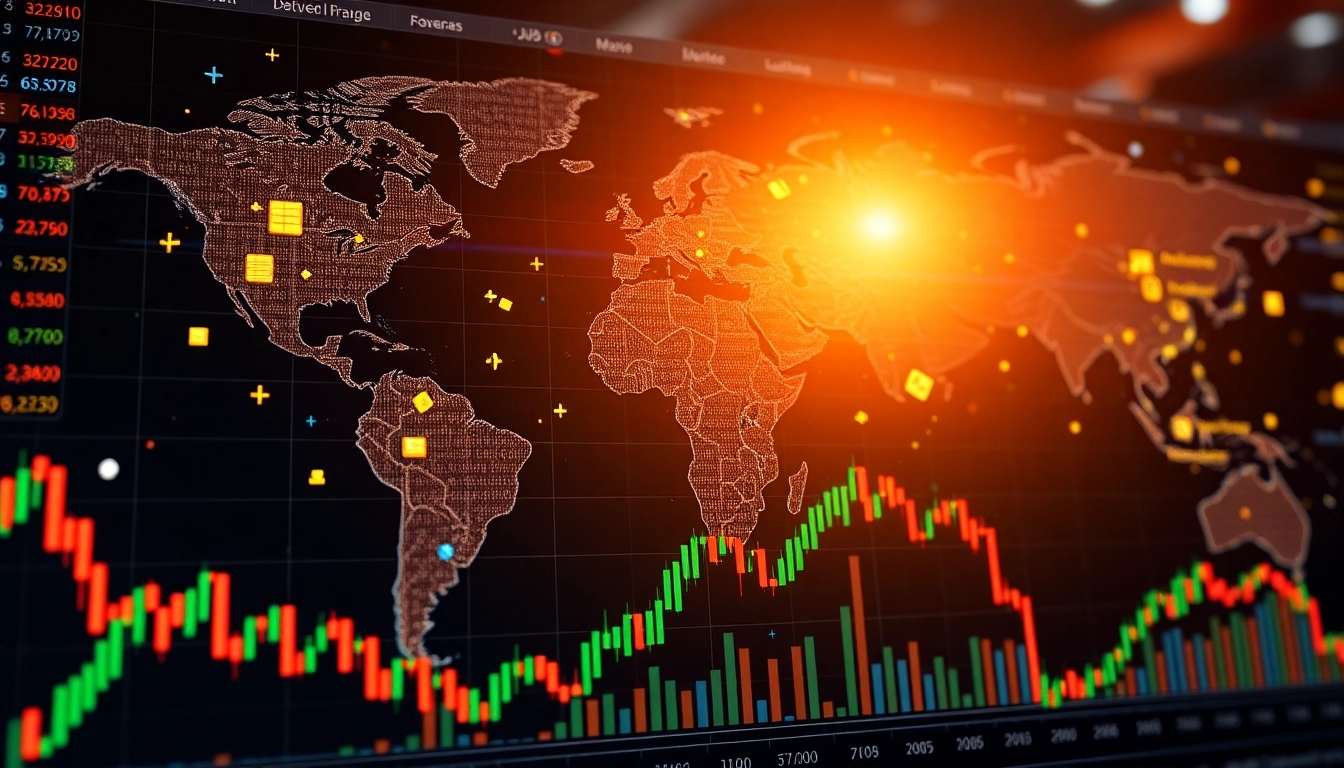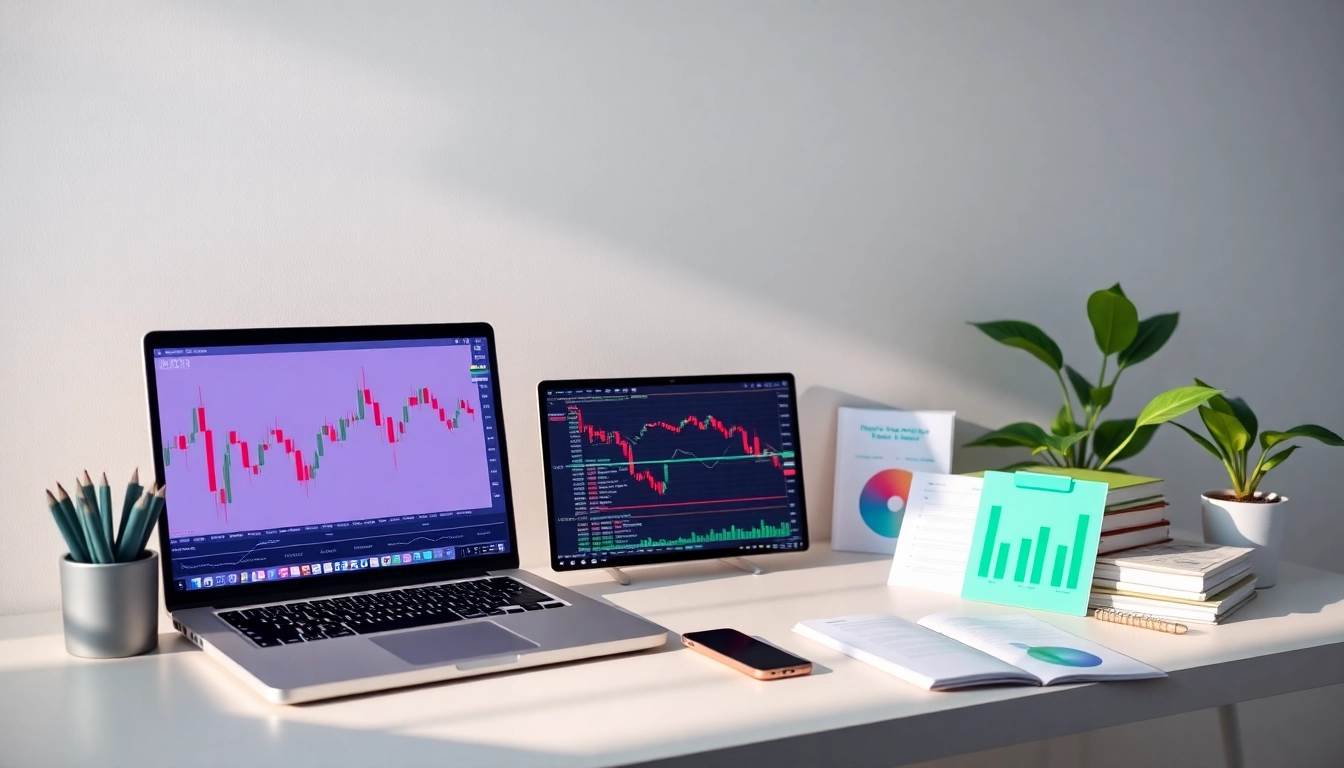Current Trends Shaping the UK Commodities Market in 2024
The UK commodities market remains a complex and dynamic sector influenced by a multitude of global and domestic factors. Recently, commodity prices such as gold, oil, and various metals have exhibited notable movements, reflecting broader economic, geopolitical, and technological shifts. Understanding these patterns is crucial for investors seeking to navigate the challenges and opportunities presented by the current landscape. For a comprehensive overview of the latest developments, visit UK Commodities Investment News, which provides timely insights and expert analysis.
Overview of Recent Price Movements in Gold, Oil, and Metals
In the first half of 2024, gold prices have soared to unprecedented levels, hitting a record high of $3,501.59 per ounce, surpassing previous peaks set in April. This rally is driven by growing inflationary pressures, geopolitical uncertainties, and investor demand for safe-haven assets amid volatile equity markets. Meanwhile, oil prices have experienced a slight decline, with Brent crude futures falling approximately 0.6% to around $68.23 per barrel as US and Chinese energy policies adjust and US adviser’s comments influence market sentiment. Despite recent dips, oil remains on track for a weekly gain, supported by sustained global demand and geopolitical tensions in key oil-producing regions.
Metals such as copper and iron ore have also shown mixed reactions. Weak Chinese manufacturing and construction data have contributed to a decline in iron ore futures and copper, vital components for infrastructure and electronics industries. These movements underscore the importance of global economic health—particularly China’s manufacturing activity—on UK commodity prices, considering the UK’s significant import reliance on metals for industrial purposes.
Impact of Global Economic Shifts on UK Commodities
The global economy’s turbulence significantly influences UK commodity markets. Recent US inflation data and expectations of interest rate cuts have caused fluctuations in currency values and commodity prices. A depreciating US dollar generally boosts commodity prices since most are dollar-denominated, yet the recent drop in the dollar’s value amid rate cut optimism has coincided with rising gold prices. Conversely, if rate cuts weaken the dollar excessively, it could trigger inflationary pressures, further lifting precious metals.
Moreover, the UK’s economy is affected by aspects such as Brexit’s ongoing impact on trade flows, customs arrangements, and import tariffs, which influence commodity costs, particularly in energy and trade-dependent sectors. This economic uncertainty drives UK investors to seek diversification and hedge assets, often pivoting toward commodities like gold and oil as safeguard investments.
Analyzing the Effects of Geopolitical Events on Commodity Stability
Geopolitical developments continue to be major catalysts for commodities price volatility. For instance, tensions in the Middle East and Eastern Europe often trigger spikes in oil prices due to supply concerns. Recent US-China trade relations and discussions around tariffs further influence energy and mineral markets. Specifically, US calls for tighter sanctions or trade restrictions tend to tighten supply chains, elevating prices. Conversely, diplomatic resolutions or de-escalation can stabilize markets.
In 2024, developments such as China’s extension of tariff pauses and Russia’s oil export adjustments have had notable impacts on the UK commodities sector, affecting input costs and export prospects. Moreover, ongoing geopolitical conflicts elevate risk premiums, prompting UK investors to closely monitor political sources and global institutions for cues on future price trajectories.
Strategies for Investing in UK Commodities in 2024
Assessing Risks and Identifying Lucrative Opportunities within the UK Market
Successful commodities investment in the UK hinges on rigorous risk assessment and strategic opportunity identification. Investors should leverage advanced analytics to identify price support and resistance levels, market sentiment shifts, and economic indicators. Current opportunities include gold, buoyed by inflation hedging, and energy commodities responding to geopolitical tensions. Risk mitigation strategies encompass futures contracts, options, and diversified exposure, aiming to balance potential gains with downside protection.
Case studies reveal that proactive positions during price corrections, combined with fundamental analysis of supply-demand dynamics, have historically yielded high returns. For example, during asset sell-offs triggered by geopolitical fears, buy-and-hold approaches in gold have proven advantageous, especially as central banks and institutional investors increase their holdings.
Utilizing Market Indicators and Forecasts for Informed Decisions
Market indicators such as moving averages, Relative Strength Index (RSI), and commodity-specific indicators like COT reports assist investors in asset timing. For instance, maintaining awareness of the 200-week trendline in gold can signal bullish momentum if preserved, offering opportunities for entry or exit.
Furthermore, sentiment analysis tools and macroeconomic forecasts—covering GDP growth, inflation rates, and currency movements—augment decision-making. The integration of real-time news, such as political developments or policy announcements, enables traders to adjust positions swiftly, reducing exposure to sudden shocks.
Implementing Diversified Portfolios to Hedge Against Volatility
Diversification remains a cornerstone of resilient investment portfolios. Including a mix of precious metals, energy commodities, and mining stocks can buffer against sector-specific downturns. For example, a balanced allocation could involve a combination of gold, oil futures, and mining ETFs, tailored according to risk appetite and market outlook.
Furthermore, emerging investment vehicles like ESG-focused commodities, which emphasize sustainable and ethical sourcing, are gaining popularity. Incorporating these assets not only aligns with market trends but also mitigates regulatory risks associated with social and environmental standards.
Regulatory and Policy Factors Influencing UK Commodities Investment News
Recent Government Policies Affecting Commodity Trading and Investments
The UK government’s policies substantially shape the commodities landscape. Recent measures include regulatory reforms aimed at increasing transparency, such as amendments to trading rules for futures markets or enhanced reporting standards. Additionally, initiatives promoting sustainable and ethical sourcing influence commodity flows, especially in metals and energy sectors.
Proactive engagement with these policies enables investors to forecast potential disruptions or opportunities. For instance, incentives for renewable energy investments could bolster demand for certain metals like lithium and copper, which are critical for green transitioning efforts.
Understanding Brexit Implications on Commodity Imports and Exports
Brexit has introduced new customs procedures, tariffs, and supply chain complexities, impacting import costs and timeliness for UK commodities. Companies and investors face increased compliance burdens and price volatility. However, Brexit also creates a tailored market environment where strategic localization and diversification of supply chains can serve as competitive advantages.
Monitoring trade agreements and policy updates ensures timely adaptation. For instance, securing preferential tariffs or establishing new trade partnerships can significantly influence profit margins and market stability.
Monitoring UK Regulatory Updates and Compliance Requirements
Staying compliant with evolving regulations is vital. The UK’s Financial Conduct Authority (FCA) and other regulatory bodies regularly revise rules around commodity trading, derivatives, and ESG disclosures. Non-compliance may lead to penalties or market exclusion, underscoring the importance of robust compliance frameworks.
Utilizing advanced compliance tools and engaging with legal experts helps investors navigate these changes effectively, ensuring smooth operations within a highly regulated environment.
Emerging Trends and Future Outlook in UK Commodities
The Rise of ESG Investing in Commodities
Environmental, Social, and Governance (ESG) factors are reshaping commodities investing. Investors now prioritize sustainable sourcing, carbon footprints, and social impact, leading to increased demand for responsibly mined metals and renewable energy resources. Consequently, ESG ratings influence market access, pricing, and investment flows.
UK traders are increasingly integrating ESG metrics into their decision-making frameworks, aligning portfolios with global sustainability goals and appealing to institutional investors seeking responsible assets.
Technological Innovations Impacting Commodity Trading and Analysis
Technologies such as artificial intelligence, blockchain, and big data analytics are revolutionizing commodity markets. AI-powered R&D enhances predictive accuracy for prices and demand, while blockchain ensures transparency and traceability in supply chains. This integration reduces fraud risk and enhances trading efficiency.
For example, AI models embedded within trading platforms facilitate rapid response to market signals, enabling better timing and risk management, while blockchain enhances trust in mineral traceability, complying with ESG standards.
Predictions for UK Commodities Prices and Investment Flows
Looking ahead, gold is expected to retain its appeal amidst inflationary pressures, potentially exceeding $3,600 per ounce if geopolitical tensions persist. Oil prices may fluctuate within a range of $65–75 per barrel, subject to supply-chain considerations and geopolitical risks. Meanwhile, demand for green metals like lithium and copper is projected to grow strongly, driven by the UK’s and Europe’s energy transition policies.
Investment flows are anticipated to favor ESG-aligned commodities, with increasing participation from institutional investors and sovereign funds. Staying attuned to regulatory developments and global economic signals will be essential for capitalizing on these trends.
Leveraging Market Data and News for Competitive Advantage in UK Commodities
Utilizing Real-Time News to Anticipate Market Shifts
Timely information is key in commodities trading. Investors benefit from real-time news feeds covering geopolitical events, policy announcements, economic indicators, and global supply chain disruptions. Advanced analytical tools and news aggregators help interpret this data rapidly, supporting informed decision-making.
For example, news of US Federal Reserve rate cuts or geopolitical tensions in the Middle East can instantly affect energy prices and currency valuations, enabling traders to adjust positions proactively.
Case Studies on Successful UK Commodities Investment Strategies
Historically, strategic positioning during market downturns, such as increased gold holdings during inflation spikes, has yielded high returns. An illustrative case involves a UK-based hedge fund that increased its gold exposure during 2023’s inflation surge, realizing significant gains as prices soared.
Another example is energy traders who anticipated supply disruptions due to geopolitical tensions, positioning long contracts that paid off as prices climbed sharply. These case studies demonstrate the importance of blending fundamental analysis with timely news insights.
Tools and Resources for Ongoing Market Analysis
Investors should leverage sophisticated tools such as Bloomberg Terminal, TradingView, and specialized commodity analysis platforms. These provide real-time data, predictive analytics, and customized alerts, facilitating agility in volatile markets. Government and industry reports also serve as valuable resources, offering macroeconomic forecasts and supply-demand insights essential for strategic planning.




